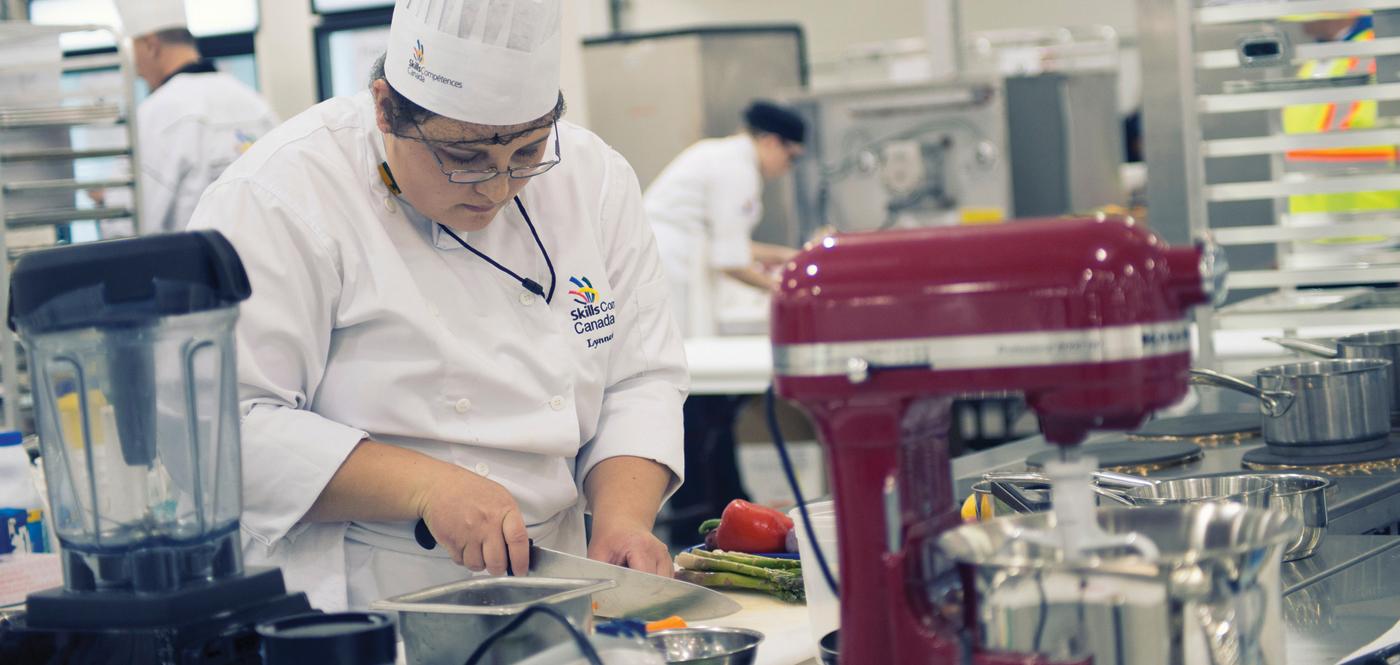
If you want to get into the workforce quickly and you like working in fast-paced environments, Saskatchewan Polytechnic’s Food Service Cook program is a great choice. Food service cooks prepare meals and snacks for large numbers of people—and they are in high demand in restaurants, hotels, resorts, health and educational institutes, remote mining camps and more.
Start date
January
Length
16 weeks
Location(s)
Prince AlbertFood Service Cook (formerly called Short Order Cooking) is an intensive 16-week applied certificate program offered through Saskatchewan Polytechnic Prince Albert campus. The program is designed with industry input to help make your training as practical and realistic as possible. You’ll get the kind of entry level cooking skills and hands-on experience employers want, while learning how to prepare a large number of orders. Get practical experience in:
- basic cooking principles
- soups, pastas and cold foods
- breakfast and dairy
- meat and poultry basics
- kitchen tools and equipment
- professionalism
- safety, sanitation and WHMIS
This program is delivered when a minimum number of students has been reached. To place your name on the interest list contact Everett Nelson, program head at everett.nelson@saskpolytech.ca.
Apprenticeship credit
Trade to degree
Career and salary information
Your career
When you graduate from the Food Service Cook program, you’ll have the knowledge and skills for a wide variety of jobs. Work full or part time in coffee shops, restaurants and hotels. Look for positions in health care and educational institutes, fly-in fishing resorts, mining and construction camps, and more.
Admissions
Admission requirements
- Open Access
- English Language Requirement
Admission method
First Qualified/First Admitted
The First Qualified/First Admitted (FQFA) process is used for the majority of Saskatchewan Polytechnic programs. When we determine that you meet the program's admission requirements, you will be offered admission based on the date you fully qualify for the program. The earlier you provide the appropriate documents and information that qualify you for admission to the next intake, the earlier you might begin your studies.
Applications for all FQFA programs open September 1 each year.
Sponsored programs or programs targeted to specific groups do not accept applications year round or maintain an application pool.
See Admission Processes for more information about this method of admission.
Tuition and fees
2024-25 academic year
To be determined.
Courses
Get credit for what you know
Prior Learning Assessment and Recognition
Saskatchewan Polytechnic recognizes that adults learn in many different ways. This includes acquiring knowledge and skills through life and work experience or non-formal training.
See link(s) below to get more information about PLAR.
Transfer credit
Many Sask Polytech students benefit from transferring course credit. You may be eligible to transfer credit to Sask Polytech or to another college or university.
Transfer credit options vary over time; this information is subject to change. Transfer credit options for this program include:
- transfer credit for seven courses toward Saskatchewan Polytechnic's Professional Cooking program
Student awards
Thanks to the generosity of donors and alumni, Saskatchewan Polytechnic gives away more than $2 million in student awards during the academic year.
Saskatchewan Polytechnic offers student awards for every certificate and diploma program at every campus. Not all student awards are based on marks - some are based on financial need or things like community or volunteer involvement.

